Home > North Carolina > North Carolina Crops & Livestock > Big Business of Food
Big Business of Food
In partnership with: North Carolina Department of Agriculture & Consumer Services
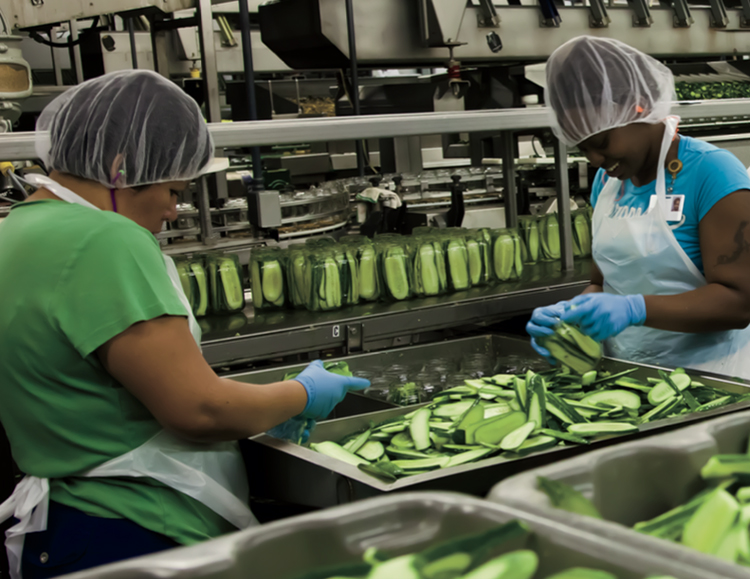
In 1926, bumper crops of cucumbers were going to waste in Mount Olive. Determined to help the community, a local group of businesspeople established the Mt. Olive Pickle Co. It was an action that would benefit the town not only that year, but for decades to come – and make the community the state’s unofficial pickle capital.
“This is our 90th anniversary year,” says Lynn Williams, public relations manager at Mt. Olive Pickle Co. “We are the best-selling brand of pickles, peppers and relishes in U.S. grocery stores. I think the original founders of the company would be pleasantly surprised at where we are today.”
“Homegrown” by all definitions, the roots of Mt. Olive’s success run deep, dependent on many of the state’s natural advantages, including its subtropical climate, East Coast location and transportation networks. They also credit a strong working relationship with North Carolina State University (NCSU) since the 1940s.
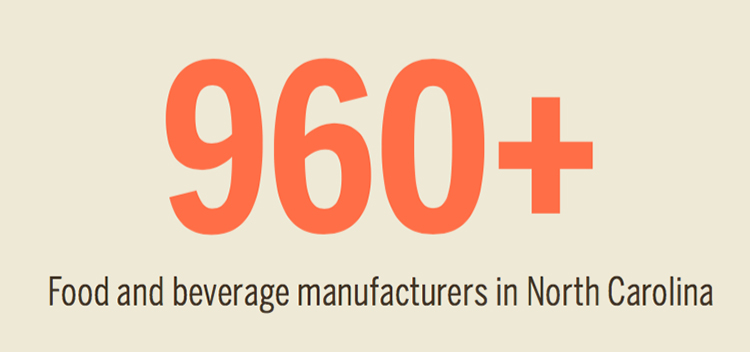 This food business success story is just one of many for North Carolina, which is home to some of the nation’s best-known brands such as Smithfield Foods, Butterball and, of course, Mt. Olive.
This food business success story is just one of many for North Carolina, which is home to some of the nation’s best-known brands such as Smithfield Foods, Butterball and, of course, Mt. Olive.
North Carolina Agriculture Commissioner Steve Troxler says there are numerous reasons why food businesses choose North Carolina, including its pro-business attitude, supportive resources like the Got To Be NC Agriculture branding program, and access to local, national and international markets.
“Another factor that makes North Carolina a great place to have a food business is access to capital. Our state continues to be a strong financial center,” he adds.
Economic Impact
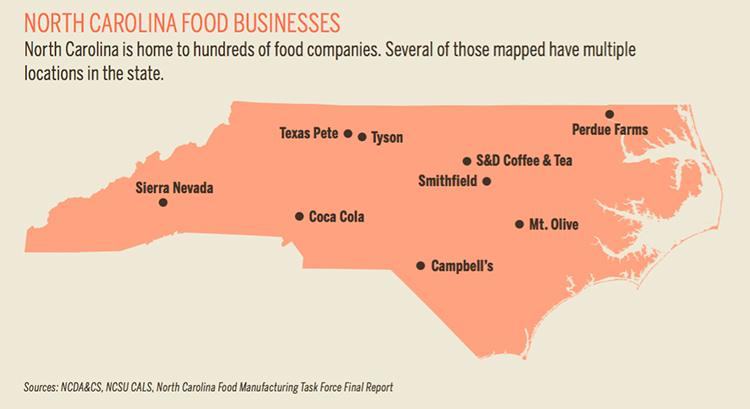
An economic feasibility study by the NCSU College of Agriculture and Life Sciences (CALS) and North Carolina Department of Agriculture and Consumer Services (NCDA&CS) estimates that the advancement of a Food Processing and Manufacturing Initiative could add nearly 38,000 jobs and $10.3 billion to North Carolina’s economic output in less than 10 years.
In April 2016, the Governor’s North Carolina Food Manufacturing Task Force released its final report identifying key recommendations for capitalizing on the state’s food manufacturing industry potential.
“The biggest takeaway is it’s a huge opportunity for our state economically. When we met last year, we added up to 2,200 new jobs and over $450 million invested in new or growing food manufacturing ventures,” explains Dr. Richard Linton, chair of the Food Manufacturing Task Force and dean of NCSU CALS.

As a heavy ag production state with over 80 commodities, food manufacturing can especially help create jobs in rural areas that are struggling from an economic standpoint.
New jobs could be added in transportation, processing and manufacturing, packaging, and further distribution – all facets of jobs that are not in state presently.
To accomplish this, the report recommends building a coordinated network and team that can respond to these opportunities both proactively and reactively. This synergistic relationship includes partnerships between the Department of Commerce, NCDA&CS, NCSU and other academic institutions, and the lieutenant governor’s office – a group that can address the business, regulation, science and policy behind new business questions.
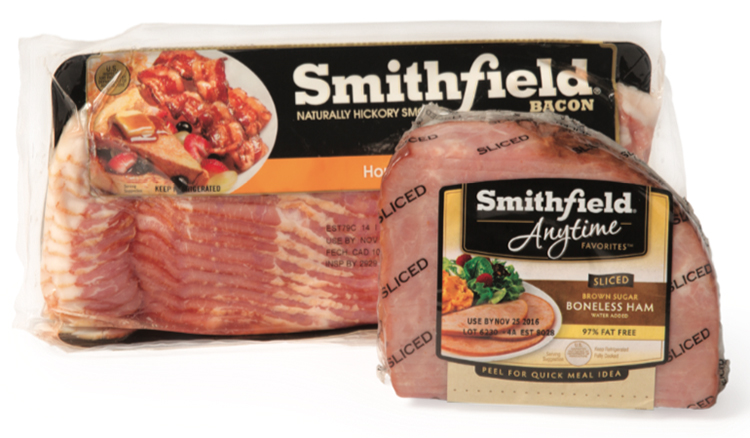
Committed to Good Food
Smithfield Foods has a big impact in North Carolina, manufacturing a variety of pork products with six operations and hundreds of farms.
Recruitment and development of a food innovation center are also important pieces, helping foster community relationships, cost-saving measures and incentive programs, as well as workforce development and training.
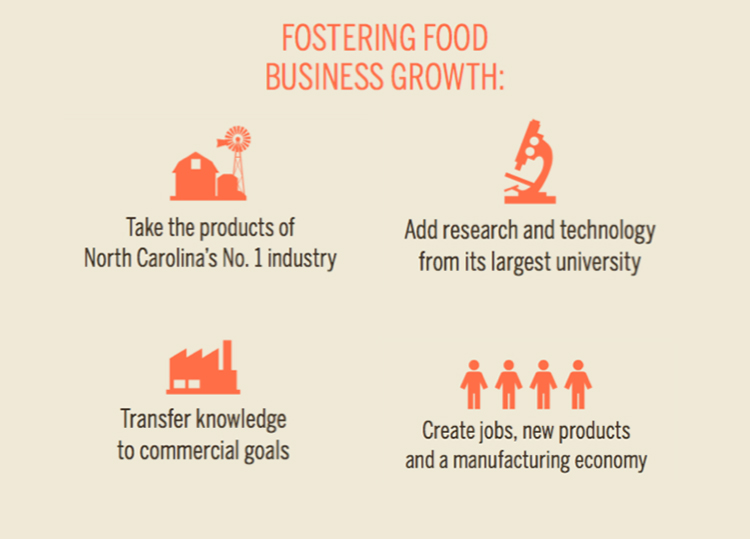 “This is not a ‘should do’ for North Carolina but an absolute ‘must do’ if we are going to build our agriculture industry,” Linton says. “We can create a ‘bread basket’ for food manufacturing in the Southeast, and North Carolina is positioned better than any other state to accomplish this.”
“This is not a ‘should do’ for North Carolina but an absolute ‘must do’ if we are going to build our agriculture industry,” Linton says. “We can create a ‘bread basket’ for food manufacturing in the Southeast, and North Carolina is positioned better than any other state to accomplish this.”
Troxler notes that “even though the formal work of the task force has wrapped up, the conversations haven’t stopped, and that’s good.”
In fact, the state is already moving forward with several recommendations in the report, which is sure to attract even more food-related businesses to North Carolina in the future.
“It might sound funny to think of food as an ambassador for our state, but it’s happening,” Troxler says.



